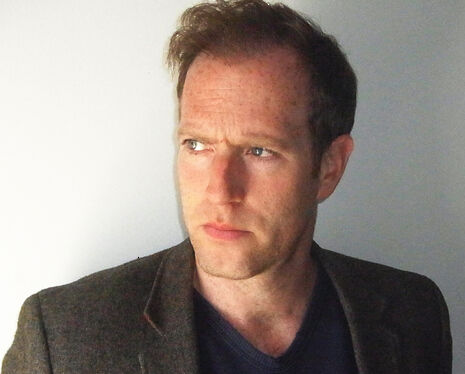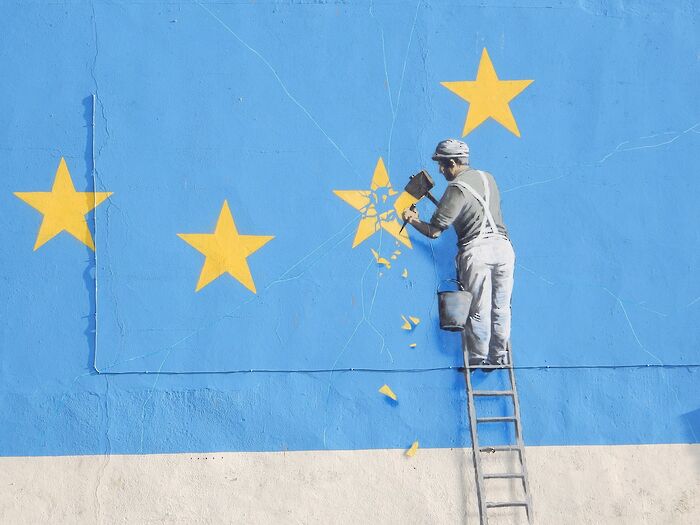Timothy Less: “It was inevitable that Britain was going to leave the EU”
The former diplomat and political analyst talks to Oliver Rhodes about the rise of European populism, the “inevitable” decision of Brexit, and the possible collapse of the EU

For many, the European Project is under existential threat. Ask anyone on the streets of Britain today whether they identify as ‘European’, and one may be met with a defiant expression of political loyalty. Ask anyone on the frontiers of this elusive construct, in Ukraine or Greece, Hungary or Turkey, and suddenly one’s perception of a shared principle vanishes into thin air. With Britain’s departure from the European Union less than six months away, never perhaps in recent memory has faith in a shared ‘Europe’ been so fragile.
It is to understanding this fragility that Timothy Less has dedicated his career. As part of this week’s ‘Festival of Ideas’, he will speak at a panel discussion entitled ‘Europe in the Age of Extremes’. The title captures a sense of our existential angst. This is the era, after all, of right-wing nationalist parties such as the Swedish Democrats and Alternative für Deutschland, whose less-savoury supporters suggest a Europe regressing.
It is reassuring, perhaps, that Less approaches these developments with an analytical lucidity rarely found in the headlines. “Europe is under stress from the impacts of globalisation,” he explains as we sit down in a conference room at Darwin College; the symptoms of this are “a rise in inequality and economic insecurity on the one hand, and the social impact of mass immigration on the other.”
Less’ wide-angle analysis of European affairs is the product of years of experience in a region of Europe where cultures blur and loyalties fray. Growing up during the fin de siècle of the Soviet Union, Less was gripped by what was going on behind the Iron Curtain, in “the Europe of tanks and bread queues.” He completed his PhD in Albania before entering the Foreign Office as a special advisor in Albania and Macedonia. He now serves as a researcher at the University’s Forum of Geopolitics, and as the head of Nova Europa, a consultancy which provides risk analysis to companies and government agencies operating in Eastern Europe and the Balkans.
"The EU is defined by a treaty that was written in the 1950s by people all of whom are long dead, in circumstances that have all but vanished"
I ask him what he has learnt from his diplomatic career in a region little understood in Britain. “If you look at the Balkans from afar, you think that the region is gripped with a sort of madness, a relentless and uncompromising determination not to share states, and in extremis to resort to brutality to uphold their sovereignty. Unless you've been there, you just won't understand why the people can't relax.” This is the Europe we rarely see outside of the history books: bitterly divided ethnic and religious communities; perpetual struggles for territory and national self-assertion; a recent history of genocide.
Where is Europe heading then, if not back into the turbulence of the twentieth century? Less presents me with three scenarios. “One is the so-called populist nationalist response”, represented by the AfD, and Law and Justice in Poland. “The second is the classical liberal response, and the third is the neo-Marxist response”. By the latter he means “the Corbyn response”, best represented by Syriza in Greece.
Between these two extremes of left and right, then, lies a middle way. But Less emphasises that “a restoration of business as usual” will be as good as burying one’s head in the sand.
Two key pillars of the European project – the Schengen area and the Eurozone – have faced serious challenges from national governments determined to assert their autonomy. Viktor Orbán’s Hungarian government re-imposed passport controls in 2015 on its Croatian, Serbian and Slovenian borders in response to the considerable influx of Syrian refugees. In the same year, the Syriza government in Greece won a referendum to reject austerity measures imposed by the EU, designed to alleviate the disastrous economic impact of the ‘Euro debt crisis’ which had swept European economies after the financial crash. The spectre of populism, it seems, is refusing to go away.
Yet, according to Less, there is no turning back. Further centralisation is the only path forward for the EU’s establishment. “The EU is defined by a treaty that was written in the 1950s by people all of whom are long dead, in circumstances that have all but vanished”, he argues. “And unlike a nation-state which can pursue politics flexibly, we have twenty-eight member states bound by a treaty which is almost impossible to change by the consensus of all. This is a straitjacket on the EU, making it almost impervious to reform.”
“I don't believe ‘Leavers’ who say we're going to enter the promised land of ‘Global Britain’, and I don't believe ‘Remainers’ who say we’re heading for some kind of economic Armageddon.”
The financial crash of 2008 exposed the Achilles’ heel of the European project: a single currency and central bank without a fiscal union. But Less believes that aligning the tax regimes of all the Euro economies would be “impossible to deliver politically”, forcing the wealthier states into an ever closer supporting role for the poorer economies at the fringes of the bloc. “It leaves the EU and the Eurozone mortally exposed to another recession”, the consequences of which could be catastrophic for the whole project. Less sees this as the most likely scenario - “decomposition, decay and possibly collapse” – the successor of which will be a mere rump of its predecessor, “something perhaps resembling a United Nations of Europe.”
Given such a bleak prognosis for the fate of the Union, was Brexit inevitable? “The underlying issue has always been the question of sovereignty”, he states. “This issue came to the fore because of the free movement of labour. The demography of our cities was changing. A lot of people didn't like that, and when they instructed their politicians to do something about it, the politicians said that their hands were tied.”
I cannot help but think that this interpretation - that Brexit was the product of inexorable structural flaws within the EU itself - seems at odds with the prevailing narrative. The vote was extremely tight after all: a sizeable minority is now campaigning for a second vote on the basis that voters were misinformed. Brexit, according to some, was really about the manipulation of facts by corporate media; about a bullish national pride tinged with xenophobia; about foreign intervention corrupting our democracy. The fallout of the referendum surely undermines the claim that “Britain was going to leave the EU at some point”?
Less outright dismisses these assertions. “This is the sort of brainwashing theory of politics - that people were manipulated and didn't know what they were voting for, and I don't buy that”, he responds. “For lots of ‘Remainers’ membership of the EU is completely natural, logical and obvious, and when the vote goes against them they find it hard to understand.” This has caused the emergence of false rationalisations, according to Less, the most pernicious being, perhaps, speculation of foreign interference.
Our conversation, inevitably, turns to the issue of free movement. Less does not see a contradiction in the fact that Brexit appealed more to less diverse white communities. The real divide, he argues, is between these communities, often rural and more conservative, and cosmopolitan ones, which have experienced immigration on very different terms.
On the issue of free movement, then, Less is highly ambivalent. On whether it was ultimately a policy mistake, he concludes that “it's obviously good for those individuals who are able to travel from relatively deprived parts of Europe to better developed parts of Europe, to raise their standards of living. But at the macro-level it has had quite damaging consequences.” He cites the demographic pressures Western European countries are now facing, and consequent pressures on housing and public services. He also argues that it has caused depopulation in parts of Eastern Europe, which has been damaging for their economies and social systems.
Less presents a vision of the European liberal order under serious strain from all sides. Brexit may just be the first symptom of a malaise which shows little sign of abating; caused by the irreconcilable conjunction of the demands of global capitalism, and desires for social stability and cultural identity. Yet if the discourse of European solidarity and national self-determination are evidence of anything, they demonstrate that the strategies of the past will not be the remedy. “I don't believe ‘Leavers’ who say we're going to enter the promised land of ‘Global Britain’, and I don't believe ‘Remainers’ who say we’re heading for some kind of economic Armageddon.” The perspectives offered by Less may just help us look past the hysteria. It may help us work toward a consensus on the future of Europe.
 Interviews / Lord Leggatt on becoming a Supreme Court Justice21 January 2026
Interviews / Lord Leggatt on becoming a Supreme Court Justice21 January 2026 Features / Are you more yourself at Cambridge or away from it? 27 January 2026
Features / Are you more yourself at Cambridge or away from it? 27 January 2026 News / Reform candidate retracts claim of being Cambridge alum 26 January 2026
News / Reform candidate retracts claim of being Cambridge alum 26 January 2026 News / Stand Up To Racism protests in solidarity with Minneapolis marches28 January 2026
News / Stand Up To Racism protests in solidarity with Minneapolis marches28 January 2026 News / Vigil held for tenth anniversary of PhD student’s death28 January 2026
News / Vigil held for tenth anniversary of PhD student’s death28 January 2026










